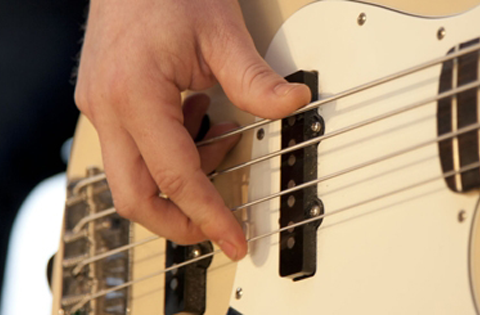
Don Glanden, Program Director
wglanden@uarts.edu
215.717.6353
C O N T E N T S
Description
The Master of Music in Jazz Studies degree has its roots in three decades of University of the Arts leadership in the field of jazz education, carefully balancing goals and a pragmatic approach to vocational responsibility in the context of this American music idiom. Open to a small and highly advanced group of students who have an undergraduate degree in jazz studies, or an undergraduate degree in music with significant experience in jazz and contemporary music, the program’s primary focus is on encouraging individual career goals while providing a solid foundation in contemporary music.
Graduates of the Master of Music in Jazz Studies program demonstrate excellence as performers, composers, and improvisers with a deep understanding of the jazz idiom and the improvisatory process that form the curricular foundation of the program. Graduates demonstrate a high level of scholarship and are effective communicators, trained in advanced pedagogical approaches, research techniques, analytical methodologies, and music journalism. They contribute to the public discourse in their field. Graduates are independent critical thinkers able to synthesize multiple stylistic influences, pedagogical perspectives, current technologies, and a high level of craft as they pursue a personal artistic vision and musical identity.
Curriculum
Among the one-year, 32-credit program’s unique curricular components are advanced private instruction in the major area to develop professional-level artistry and skills; hands-on internships; ensemble performances; arranging, composing, transcribing and analyzing jazz and contemporary music; study of MIDI and music technology; music journalism, jazz pedagogy, and a final thesis/project/recital that integrates in-depth research on a topic of special relevance with personal musical growth that, culminates in a public performance. In addition to completion of the requisite 32 credits, must take or have taken two co-requisite courses of two credit hours each: Recording and The Business of Music.
The Master of Music in Jazz Studies is designed for students who have completed a bachelor’s degree in jazz performance or other applied music with significant experience in jazz/contemporary music studies. The MM can be completed in a one-year, two-semester schedule, provided that all prerequisite skills are satisfied prior to beginning the program. The entrance requirements include advanced technical and stylistic facility on the major instrument, voice or in composition, as well as skills in improvisation, jazz theory and ear training, and jazz history. The MM program is intended to dramatically increase the student’s performance abilities, as well as provide a diversity of other professional-level competencies, preparing the student for a career as a music professional or college-level teacher.
Graduation Requirements
All MM students must complete a satisfactory graduate project and a graduate recital in order to meet the degree requirements for completion of the Master of Music. The recital must include musical selections as stipulated by the major teacher and department and must conform to the guidelines as stated in the school policy governing recitals and Senior recitals.
Program Objectives
Master of Music in Jazz Studies graduates will:
- demonstrate an advanced understanding of the jazz idiom and improvisatory process;
- possess an advanced ability for the analysis of music from various periods and styles, demonstrating theoretical and historical understanding and the ability to transform that understanding into personal creative activity;
- exhibit excellence as performers and composers through the development of original material, technical mastery of their instruments, interpretive skill, ensemble experience, superior listening ability, and the development of a personal conceptual approach to improvisation and composition;
- demonstrate the verbal and written communication skills necessary to be effective pedagogues, authors, advocates for their work, and overall contributors to public discourse in their field;
- employ appropriate current technologies as valuable tools in the realization of their artistic and professional goals;
- have developed the ability to think independently in the acquisition, assimilation, and application of knowledge that will shape their artistic identity, musical development, and career paths.
Program Requirements (32 credits)